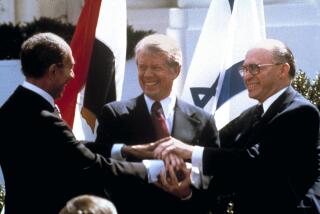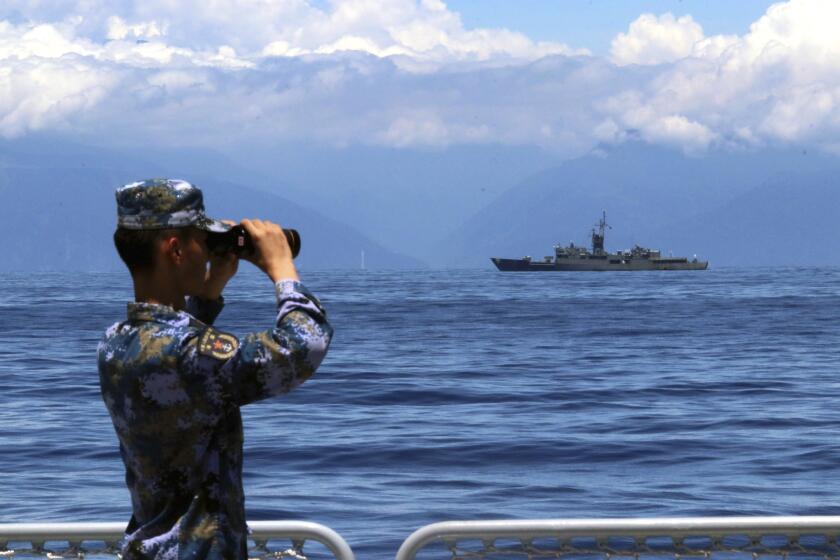Plan for Gulf States Arab Force Fizzles
- Share via
NICOSIA, Cyprus — With the last American and British troops scheduled to withdraw from Kuwait around the end of August, Arab members of the Persian Gulf coalition have set up a security arrangement that falls far short of initial goals.
While the specifics have not been spelled out, plans to permanently deploy up to 30,000 Egyptian and Syrian troops in defense of the Gulf states have been scrapped, according to accounts of a two-day meeting in Kuwait city early this week. Instead, foreign ministers of the Gulf states, Egypt and Syria endorsed a system little changed from the standing Arab League defense arrangement.
Gone without fanfare was the once-touted Six Plus Two alliance enshrined in the Declaration of Damascus in early March, when the coalition was riding high on the defeat of Saddam Hussein’s Iraqi army a week earlier. The declaration said that future Gulf security would be built around a nucleus of the Egyptian and Syrian forces sent to Saudi Arabia during the crisis, and in return, the protected Gulf states would increase developmental aid to the two Arab powers.
A standing force is no longer contemplated. While the arrangements are still murky, Syrian Foreign Minister Farouk Shareh outlined the adopted procedure when he told reporters, “It is not necessary for the force to be deployed in the region. Troops will be sent when needed.”
The security force envisioned at Damascus ran into trouble almost immediately as the solidarity of war gave way under a variety of pressures:
* In the rush on reconstruction efforts in Kuwait, American and other Western firms picked up contracts that Egyptian and other Arab officials expected would come their way. In Cairo, President Hosni Mubarak, apparently miffed at this and other financial arrangements, abruptly ordered the withdrawal of most of his military contingent. Later, Syria also pulled out most of its troops.
* The westward tilt of the Gulf states’ preferences also became evident on military matters. Kuwaiti officials, in particular, signalled that they favored a security net based on over-the-horizon sea and air forces of the United States and Britain. Leaders of Saudi Arabia and its allied oil sheikdoms also apparently prefer offshore Western muscle to the potential political difficulties of basing foreign Arab troops on their soil.
* Iranian insistence on being part of any security system for the Gulf posed problems for the coalition partners. Mubarak strongly opposed giving non-Arab Tehran a foothold in regional alliances. Kuwait and the other sheikdoms, on the other hand, have to share the Gulf’s waters with Iran and take pains not to offend their big neighbor.
The solution appears to have been a compromise at Kuwait city. Iran will not take part in a new security arrangement because there will be none. Egypt and Syria will probably receive unspecified financial help but will not be able to transfer their troop payrolls to the Gulf states. The Bush Administration, which demanded new security arrangements for the Gulf as part of the President’s “new world order,” will probably end up providing most of the muscle itself.
The Six Plus Two foreign ministers said they will meet again in September to discuss arrangements.
More to Read
Sign up for Essential California
The most important California stories and recommendations in your inbox every morning.
You may occasionally receive promotional content from the Los Angeles Times.










